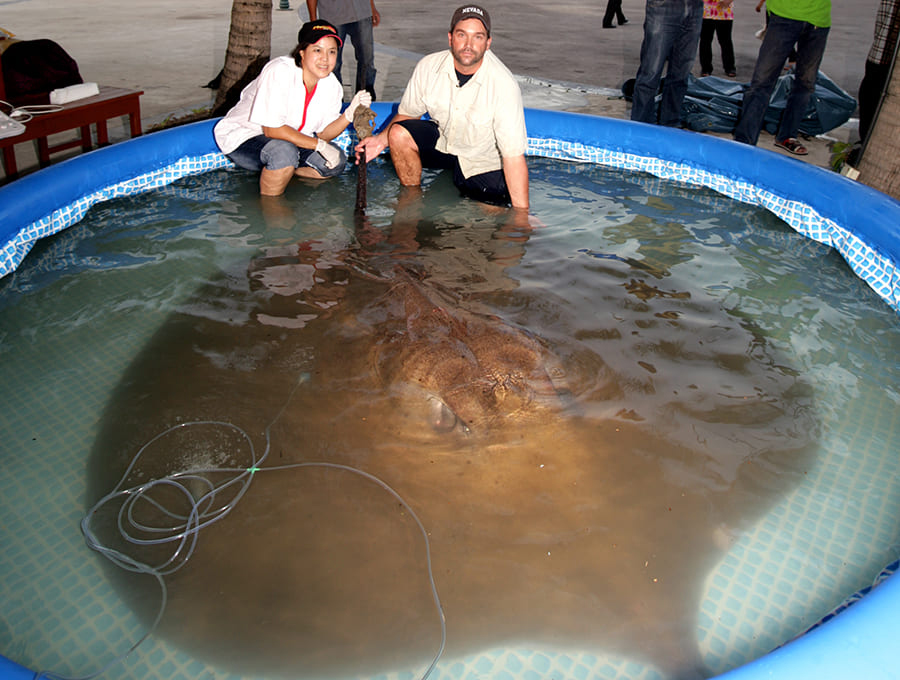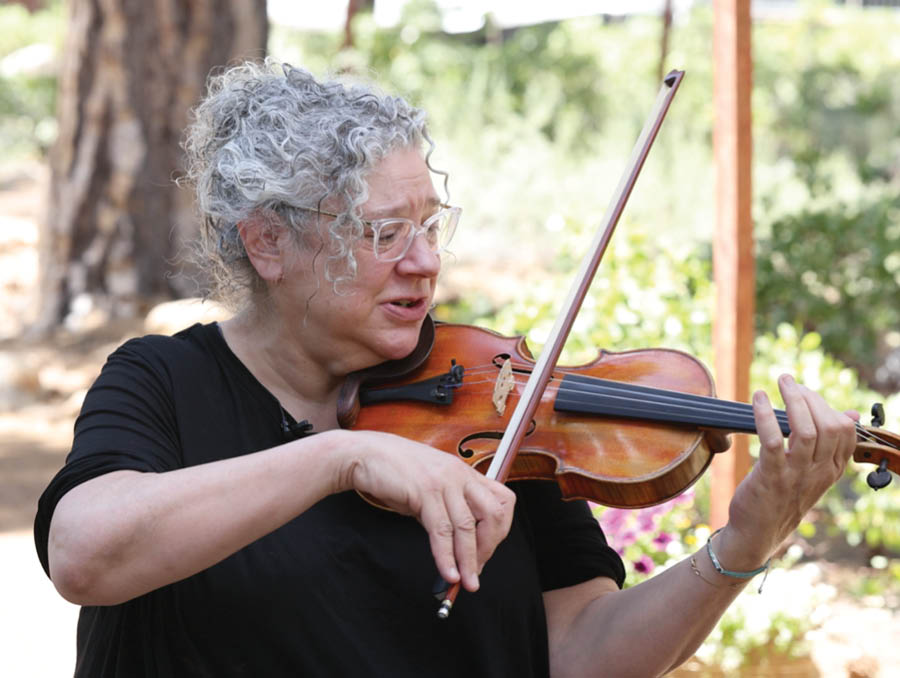Reno resident Zeb Hogan, host of the popular “Monster Fish” television series on the National Geographic Channel, will have something different to celebrate New Year’s Eve – a “Monster Fish” marathon, when seven of his shows will be shown back-to-back on the National Geographic Channel.
Hogan is a conservation biologist and assistant research professor at the University of Nevada, Reno, where he bases his worldwide research on megafish, freshwater fish more than 6 feet in length and 200 pounds.
“I’m flattered that National Geographic Channel is running these specials, sort of a look back at the first few years of the show,” Hogan said. “It makes me think back on the progress that we’ve made to find, study and protect the world’s largest freshwater fish.”
On tap for New Year’s Eve are seven episodes picked from 2006, 2007 and 2008. They are: Monster Fish of North America; Monster Fish of Australia; Monster Fish of the Congo; Monster Fish: Catfish King; Monster Fish of the Amazon; Monster Fish of Mongolia; and Monster Fish: Giants of Thailand.
The shows are scheduled to begin airing at 1 p.m. and end at midnight Dec. 31.
"There are probably about two dozen species that qualify as freshwater megafishes in the world, and roughly 70 percent of those are in danger of extinction," Hogan said. “The closest to extinction is the Chinese paddlefish.”
Other species he studies in his Megafishes Project are the elusive and highly endangered sawfish in Australia that can grow to 23 feet long, giant freshwater stingray in Thailand that are 14 feet long, as well as catfish, carp, taiman, sturgeon and the 10-foot-long alligator gar.
As project leader, Hogan, a faculty member in the University of Nevada, Reno’s Department of Natural Resources and Environmental Sciences, works with nearly 100 scientists in over a dozen countries with expeditions to study the most diverse freshwater systems in the world. This project spans six continents (North America, South America, Africa, Europe, Asia and Australia) and encompasses 10 of Earth's most diverse freshwater ecosystems, ecological treasures, including World Heritage Sites, Ramsar Wetlands of International Importance and United Nations Environment Program Biodiversity Hotspots.
He visits more than 14 sites worldwide in search of the world's largest freshwater fish, including the Amazon River, the Mekong River, the Mississippi River, the Nile, the Lake Baikal watershed in Russia, the Yangtze River, as well as rivers in Spain, Australia and Mongolia.
He also has established and works to establish conservation programs in these areas to protect the fish. For example, partly as a result of Hogan’s work with the governments of Cambodia, Thailand and Laos, capture of the Mekong giant catfish is now restricted in those countries. He’s also helped communities in the United States create conservation programs to help protect fish habitat.
In the United States, he’s studied huge fish in the Mississippi River, the Trinity River and the Kootenai River, among others. He’s filmed a documentary about the Mississippi paddlefish, which is listed as “vulnerable” by the International Union for Conservation of Nature.
“I’m delighted to share my research and the work to protect these fish,” Hogan said. “These are some of the largest, most unique and most endangered fish on Earth. It’s important to raise awareness about these giants and the freshwater habitats where they live. I think it’s a subject that people can really appreciate.”
Hogan is also a National Geographic Explorer and director of the Megafishes Project, a five-year study to help protect these monsters of the deep supported by the National Geographic Society. He holds an undergraduate degree in ecology and evolutionary biology and a Ph.D. in ecology. He spent two years as a post-doctoral researcher focusing on the ecology and conservation of the world's largest trout. He was a Fulbright scholar at the Environmental Risk Assessment Program at Thailand’s Chiang Mai University, and has also served as a World Wildlife Fund freshwater fellow. Hogan was named a National Geographic Emerging Explorer in 2004.













